Liam Payne had received an adult ADHD diagnosis. He still perished in a deadly storm of substance-induced chaos.
Another lonely broken talent bites the dust. Stop rummaging through the ephemera in his wrecked hotel room and consider how and why his tragic demise and the ADHD are connected
The press will be fixated on adding further detail to the tragic death of Liam Payne who fell to his death from a third floor balcony in Argentina on Wednesday. Photographs published in the Argentinian magazine, Clarin, have already been picked up widely, despite being unverified. If these are indeed pictures of the room he would fall to his death from, the multiple drug ephemera suggest he had been smoking hard drugs. In a tape of the emergency call from the hotel to police the caller says, in Spanish, “I'm calling from the Casa Sur hotel in Palermo, we have a guest who is over the moon with drugs and is breaking up the entire room.”
I should really hesitate before conjecting and extrapolating conclusions about the life and death of a man I’d never met. Normally I wouldn’t even go there. I’m not one of those journalists comfortable bloviating
over famous corpses. My stomach turns at the thought of the inevitable doorstepping of his family and friends, and of Cheryl (formerly Tweedie of Girls Aloud) the mother of his young son.
The ongoing suffering of famous people and especially entertainers with mental health issues is reliable fodder for our most base fascination. The literally thrilling climax of the show comes with their death. In the sickness of an idea of intimacy created by social media, there is a simulacrum of intimacy, what’s called parasocial relationship. It can feel very real, there will be much weeping and wailing and beating of chests when and if death or disaster happens to the famous object of fascination. Does anyone really care? They don’t know the person. They aren’t a friend. They are a watcher fan.
Those that do know them, in the labels, the managers, agents, stylists, hairdressers and wotnot, they also present a simulacrum of intimacy but those relationships are real but mitigated entirely by commercial interests - in the case of certain parent managers like Britneys for example, this interest trumps good parenting. I’m told Liam Payne had been dropped by his record label, Universal, two days before he died. Can anyone interested in you as a commercial proposition really properly care? Simon Cowell claims he saw Payne as a son. Hmmn
.
Think of our prurient fascination with artists high and low, be it those sadly gone, like Amy Winehouse and Matthew Perry, or the just about made its, like Lindsay Lohan or Daniella Westbrook. Were they served well by the industry that they worked in?
I felt compelled to pipe up because I want to describe what a lethal combination the mixed blessing of creativity and fame is when combined with the ADHD and addiction.
Payne was a young man, 31, who had been honest about struggling with addiction, mental health issues, recent serious ill health (possibly due to heavy drug use) and an adult diagnosis of ADHD.
When I read about Payne’s death I was on my way home from the book launch of Dr James Kustow’s How to Thrive with Adult ADHD. A number of my new ‘special needs’ friends, as we like to describe ourselves, had met at Waterstones in Hampstead to listen to Kustow talk. He is an important voice in the adult ADHD field and has a number of entertainment industry clients, including Toddla T and Matt Willis. There is a good interview with him here.
Adult ADHD still causes a lot of eye-rolling among a good portion of the population. It is a relief to listen to a man as informed and erudite as Kustow and know you aren’t just “wanting to feel special” or “will always be useless” (both alternative diagnoses levelled at me in recent months).
Kustow works within the Barnet NHS Adult ADHD service, he runs the Lifeskills gorup programme, one of only a few in London. He explains it well to norms like me, but his understanding of the condition is both advanced and influential as thepsychiatrist who trains other psychiatrists around the world to diagnose ADHD in adults. He is progressive in his understanding of ADHD as a disorder that shows up in multiple systems of the human body but we will talk more about this another time.
Not everyone with ADHD fucks up, but people who fuck up often have ADHD. It’s estimated 25% of the prison population have ADHD, compared to about a 3-4% in the general adult population. Addiction issues, to legal and illegal substances, are notably higher in the ADHD population.
Into the mix of problems Payne had, we can throw two things that are a mixed blessing at best, a death wish at worst. Fame is a strange assault on anyone’s life, let alone a child’s. You need to be secure and for there to be people who don’t treat you like you’re special or different, no matter how famo you become and especially as a teenager. The scope for falling apart is huge.
I have a friend who was inside fame world for a chunk of her life, she has seen a lot. Too much. Enough, in fact, to never want to go in there again. I have never met anyone famous who straight up enjoys it. I’ve met famous people who hate fame, and others who have an odd relationship with it, but never anyone who feels meh whatevs about it. Fame is a big deal. And not in a good way. If you are already fragile, and lacking in people who really have your back, then fame fucks you up. I don’t think we need academic papers to understand that the prematurely dead celebrities attest to its devastating impact. A study into the cause of death of notable people, found risky behaviour figured in those that died youngest. No shit professor sherlock.
This is not just about how you cope with the harsh criticism and hostile assault and abuse on line, the press attention, and the opposing force of the fawning adoration of people in real life. The contortion of ego, the money, the boredom, the isolation, the jet lag, the narcissism and insecurity. The killer is that the utter weirdness of fame creates its own community. Fame’s village green is chockabloc with lots of other famous people, none of whom are really quite your friends. Fame is being in beautiful hotel suites feeling quite quite alone. If you are already a dysregulated person, and emotionally immature because fame stole your childhood, what a perfect storm this is.
Payne described himself as a “lost boy”.
Famous people find themselves in proximity to lots of other famous people (or to apparently fortunate dilettante offspring of rich and famous people) or to people who live at the same weird pitch as them and who may well be much more fucked up than them and very good at it. The children of the rich don’t have to work, unlike celebrities, so they are really good at being messes because they have so much time to recover. These are your new pool of friends, and they are what your mother used to call, “a bad influence.”
Someone rang me yesterday to say that they had met Payne a couple of times late at night, and that they had watched him learn a whole new level of drug addiction round at the home of someone they knew. If the photographs of his hotel room on the day of his death are real, with the ephemera of home made pipes designed for making hard drugs even harder, then “jumping” from your balcony could hardly be described as intentional. All that could be ascertained from this is that he was a mess, a person in chaos and turmoil. A dysregulated person.
He had apparently been calling his ex, talking about his own death. A lot negative has been said about him, and I don’t really know what is going to come out about Payne at this stage, but my sympathy and empathy for the man is real. If you’re in this type of addiction, which certainly involves what’s known as polysubstance abuse (taking everything, all at once) the comedowns would be unimaginable to someone who has never experienced the wretchedness of physical depletion after a drug bender. The existential horror, the self-loathing, the fear of everything, the awfulness tears at your viscera. It is a physical scream of hopelessness and of loneliness. The dysregulation is epic.
In the first of the Patrick Melrose novels by Edward St Aubyn a session like this in a New York hotel is very much an unenjoyable read. It translated suitably miserably to screen too. I don’t think the rock n roll bender is something to be celebrated. I wrote a minute and mild ladylike taster of the horror in the opening of my book, Lost Dog. Anyone who had ‘been there’ made sure to tell me how awful it made them feel. It’s devastating, and it’s so difficult to escape.
“Now that’s what I call a proper rock n roll exit,” said one hardened old music biz figure to me, “He’s a pop star who out did the rock n rollers.”
It was said admiringly.
Over the next few days a lot is going to be said about this poor soul. Let’s forgive him in death and understand his suffering. Liam Payne opened more One Direction songs and shared the most writing credits (along with Louis). (Not a 1D fan, I only know this because I did googlings). People may poo poo the value of a young pop stars creativity, but he was a creative person. He had not yet moved from pop stardom into the cosy cardigan semi-retirement of former pop idols, producing wine in your name to be sold in Morrisons and Lidl to keep profiting from the devotions of your once young fans. And now he never will.
Let’s look at the fact that Liam Payne had ADHD. It might not give us the sick satisfaction of clicking through the endless links to the lurid speculative updates on gossip sites and in tabloids. This is a much more important forensic lens through which to view him and understand what went wrong than wondering what cocktail of compounds was being smoked through a coke can. That’s just the end result.
ADHD and creativity are linked. It doesn’t mean all ADHD people are creative. But Kustow observes that the entertainment industry has a disproportionately high number of both. Why ADHD and creativity are linked requires more neuroscientific detail than I can pretend to understand, he explains it simply as. “Ideas have more time to develop in the ADHD brain before natural brakes kick. Ideas unfold unchecked by inhibition. This gives information in the mind time to link with other stuff producing a map of ideas. That’s when we really start to see ADHD and creative potential.”
Even in a cross section of the general public, inhibition is negatively correlated with creativity. Inhibited people aren’t creative. Inhibited people aren’t pop stars. Studies also show that disinhibited people are better at divergent thinking and of idea generation (though they fall down when it comes to getting the job done. Something to do with [quickly copies from a book about neuroscience] frontal lobes fail to control motor drives emerging from the basal ganglia and hypothalamus.) But disinhibition is a form of dysregulation.
So, yes, creativity can flourish in people who have an ADHD type brain. But this neurological advantage effectively arises from the same poor executive function and dysregulation that can cause very bad decision making. Kustow says, “It needs to be controlled and adequately channelled. Magic can happen in the ADHD brain but there is a terrible flipside when you can’t pull back before you speak, act, think, drink...”
The disinhibition that allows ideas to run wild is a problem if it isn’t managed. Inhibition is a useful thing to have when it comes to deciding whether it’s a good idea or not to, say, take heroin or smoke crack.
Kustow describes ADHD having ten domains of dysregulation. Having read them many times now in his book, I can see where substance abuse might intersect with all of them.
James Kustow’s 10 domains of dysregulation
Attention and executive functioning (procrastination, hyperfocus, forgetfulness, distraction)
Activity (difficulty staying still, talking excessively, physical and mental exhaustion, apathy, social withdrawal, overexcitement, sexual issues)
Impulse (problems delaying gratification, disordered eating, self-harming, careless driving, interpersonal conflicts, substance abuse or addictive tendencies, spending money impulsively)
Emotion (anxiety, rapid mood shifts, quick to anger, excitability, difficulty relaxing, heightened sensitivity to rejection or criticism)
Reward or pleasure seeking (risk taking, boredom, difficulty inhibiting drives, being in the moment)
Sensory processing (sensory over-reactivity, sensory under-reactivity, sensation-seeking behaviours, frequent sense of overwhelm)
Time appraisal (time blindness, time management issues)
Sleep-wake rhythm (delayed bedtimes, sleep deficient, daytime tiredness, sleep disorders such as sleep apnoea and restless leg syndrome)
Immune function (heightened sensitivity, increased pain or pain syndromes, fatigue syndrome, more susceptible to infections, allergies, a theme of mast cell activation abnormalities with more asthma, allergy and autoimmunity)
Arousal and energy expenditure (a “boom-bust” pattern of energy expenditure, physical and mental exhaustion, blood sugar problems, perfectionism, motivation issues)
Healthy large mammals are designed to switch deftly within their autonomic nervous system from sympathetic state (fight/flight) to the parasympathetic (rest/restore) - there is also enteric, which is about digestion, let’s not overthink this one for now.
A well functioning autonomic nervous system is how kids can be laughing and playing a few moments after a whopper tantrum, or a dog can have a fight and then curl up and have a nice snooze, or my ex can go ballistic and then go to sleep. This is a sign of effective autonomic regulation switching between the two systems. We should be able to switch easily between the two. This is measured as Heart Rate Variability, HRV, a sign of how quickly you clear the stress from the body and go into a calm, parasympathetic state.
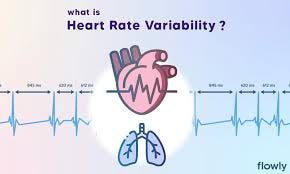
If you are not able to switch out of the SNS once the stressful period has passed and instead inhabit it all the time, it’s exhausting. An escape from this, with drink or drugs, is a relief. Doesn’t matter if you’re ADHD or neurotypical. Suffering asks for escape. Double whammy. The ADHD brain is dopamine seeking and looking for comfort and relief.
“The divergent disinhibited mind drives dysregulation in sleep, in the nervous system, in attention and emotional control,” Kustow says. He goes on to explain how the chaos and the havoc this creates can drive dopamine seeking behaviour to both top up, “under-rewarded dopamine baselines and to numb yourself.”
And then, of course, addiction sets in and if your use involves opiates then that is not just urgent wanting, it’s a physical need.
ADHD brains don’t have enough dopamine, the neurotransmitter that gets stuff done, so in the body’s attempt to produce homeostasis, dopamine seeking behaviour is instinctive. It’s self medicating. Dopamine can be increased in lots of ways, say, by taking some form of exercise, meditating, eating some crisps, smoking a cigarette, or by freebasing cocaine.
As your life spools out of control because your brain lacks the mechanism for proper impulse control and other important functions, seeking dopamine also cheers you up - albeit in the short term. I’d say substance abuse is close to inevitable for some.
It can be stressful having ADHD because the ADHD body tends towards stress. The reality of rejection sensitivity dysphoria, for example, is really boringly stressful. RSD is where you have a (you guessed it) dysregulated response to antipathy, rejection and criticism. My ex and I had a set to on Monday night, well. He lost his rag. The anger and harsh words ran through me like a knife. Afterwards he went to sleep, meanwhile I sat up wailing, honking and crying like a goose for an hour with my little podenco worriedly licking snot and tears off my face. I was crying so hard I looked like I’d been stung by 100 bees in the morning. It was an inappropriate reaction given the circumstance, but it was the one I had. That’s RSD for ya!
Steve Taylor is a psychotherapist who uses cognitive analytic therapy to help people process and understand how ADHD shows up in a life. He says of Payne, “Experiencing RSD in the spotlight must be extraordinarily difficult as you’re constantly being judged or shamed. Fame is exposing even for a Teflon neurotypical, for someone with ADHD it would be extraordinarily hard.”
He adds that, “The ADHD would have given him him creativity, tenacity and the bravery that brought him success, but on the other it would have given him the impulsivity, compulsivity and risk seeking behaviours that are so many ADHD people’s undoing.”
I wonder, was the Payne bender linked to his record label dropping him? That would hit anyone hard, but especially someone with ADHD.
It’s stressful trying to show up in the world and act normal, do the right thing, contain your uncontained - dysregulated - feelings. I speak not for myself, here, I’m fine enough. ADHD behaviour could have killed me in my twenties, but I think the worst of the risks are behind me. Having said that, when I was in my late night honking goose crying fit, thoughts of suicide wove their way through my highly stressed thinking. I felt totally without hope or options. This is where the ADHD brain goes when it is lost in catastrophic thinking mode.
I am not at risk of taking my own life, I am a capable, busy, hardworking, fortunate woman. This is not about me, I repeat my own story only in an effort to explain these wonky brains that the ADHD person needs to navigate. These brains that so many people are still skeptical, cynical, pissed off and eye-rolly about. Suicidality is much higher in people with ADHD and especially in women. Henry Shelford of ADHD UK said recently, “Research shows adults with ADHD are five times more likely than those without to have attempted suicide (14% vs 2.7%). That rises to one in four (25%) of women with ADHD."
These are very big figures. A Chinese study of over 90,000 found suicide risk was significantly higher in ADHD (OR = 1.24, p < 0.001) and ASD [autistic spectrum] + ADHD(OR = 1.49, p < 0.001) group. A big study by the Glasgow University Suicidal Behaviour Research Laboratory is underway to better understand the complexities of this link. In the press release Shelford says that almost all ADHD UK’s funding comes from the bereaved relatives of ADHD people who have taken their own lives.
Last night at Kustow’s book launch I met up with a number of my funny, sparky, new broken Brian acquaintances: Libby, Kate, Christian, Steve. I’ve talked to all of them about their experience of chaos and havoc. We all know it well. All are ostensibly successful people. Capable. Creative. Educated.
Kustow describes a combination of ADHD, substance abuse and the entertainment industry as having the potential to be “really toxic”. That’s putting it lightly. Poor Liam Payne. Or, “Poor kid,” as a musician friend of mind said, “The record industry really does not give a shit about its artists.”
Another lonely broken talent bites the dust.
Study after study has shown ADHD is a significant risk factor for the development of substance use disorder, alcoholism and cigarette smoking in teens and adults. It is also implicated in eating issues, diabetes, and obesity (disordered eating and food addiction). If ADHD is treated correctly a lot of these problems simply let up, something Gabor Mate observed nearly thirty years ago working with street addicts in Vancouver. Treat their ADHD and their drug use can be better moderated. I don’t know about Mate, his views on ADHD are problematic. But since I’ve been medicated the dopamine seeking activities have receded noticeably.
Dr James Kustow is a serious, kind and eminent psychiatrist. His book is for everyone, a simple, clear explanation of what you are dealing with and tricks and tools to manage the workaday inconvenience of having a brain that might be all sorts of good things in some ways but only when contained and manageable. This books helps that happen. I strongly recommend you buy it if you have ADHD or want to help someone with it.
It’s taken me a very long time to own this ADHD thing that I have recently been lumbered with. There’s been unwitting perhaps but palpable external prejudice from people within my family, friends, my (former) agent and let’s not forget the delightful Dear John from my ex, which listed both the ADHD diagnosis and the medication as a reason to no longer be in a relationship with me. But the person with the most prejudice was me. I know it’s real but I harshly judged myself and others with it.
I have read a lot, talked to a lot of people, done a fair bit of cringing self-scrutiny. But still, not really wanted to believe that ADHD is real. But Liam Payne’s death was so pitifully violently tragic. In another sliding door world…well, there but for the grace of God.
I write all this not as a command for your sympathy. It is as a plea for understanding and education.
ADHD does not equal creativity, nor does it equal failure. Richard Branson, Bill Gates and Emma Watson will step forward and attest to that. But we would do well to understand it, treat it, and stop gaslighting those that have it by telling them their issues are made up or attention seeking or can be dealt with by giving up screens or some other blasé ignorant and dismissive statement of NOT fact.

At his book launch Kustow, 49, read an epic poem in rhyming couplets he had written to better describe the complex ideas contained in his most recent learned hypothesis regarding mental health disorders. Ambitious but it worked. Kustow is a very creative thinker, an important adult ADHD psychiatrist who can write poems about complex medical ideas. No surprise he was diagnosed himself at 34.
The final lines of his poem seem even more poignant in the light of Liam Payne’s terrible end.
‘I’m certainly not expecting a welcome reception, from all those who read these challenging reflections. Especially those who are presently fine, or metaphorically blind, or in some way invested in the current paradigm//But what the hell! It needs to be said. A voice of the many, who often feel “better off dead”.’
Thanks for reading. (And thanks for writing this book, James Kustow.)





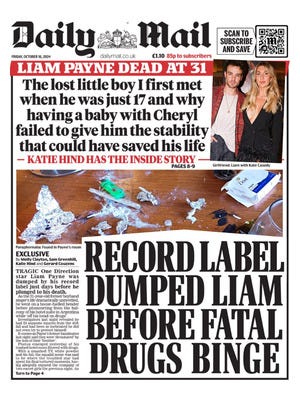
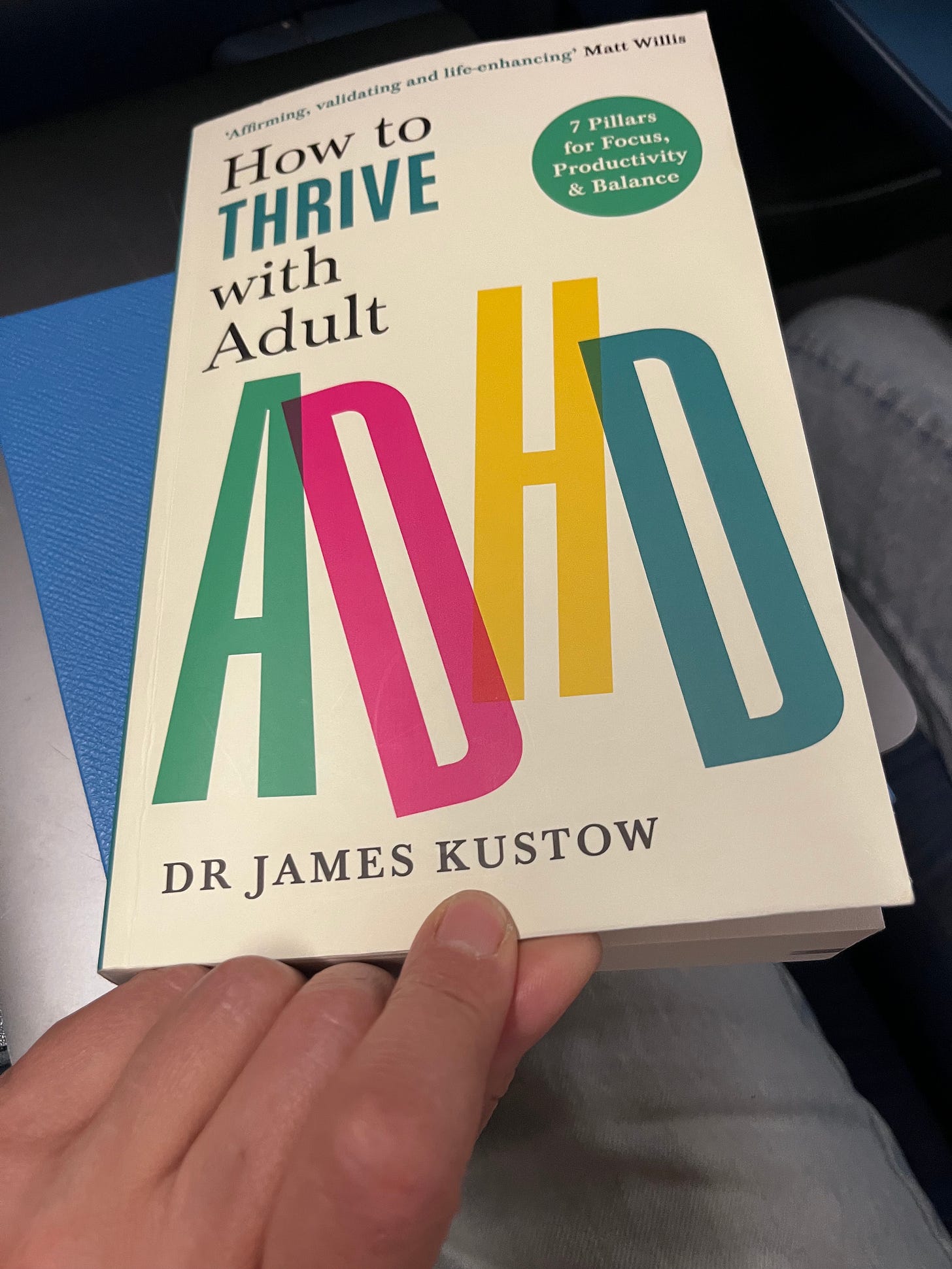


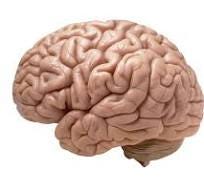
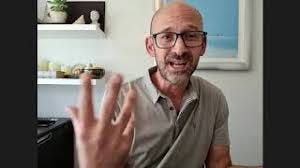
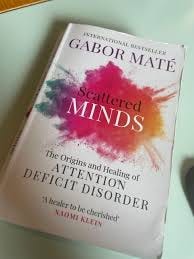
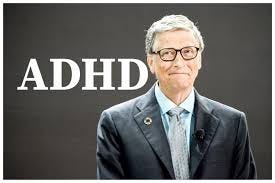
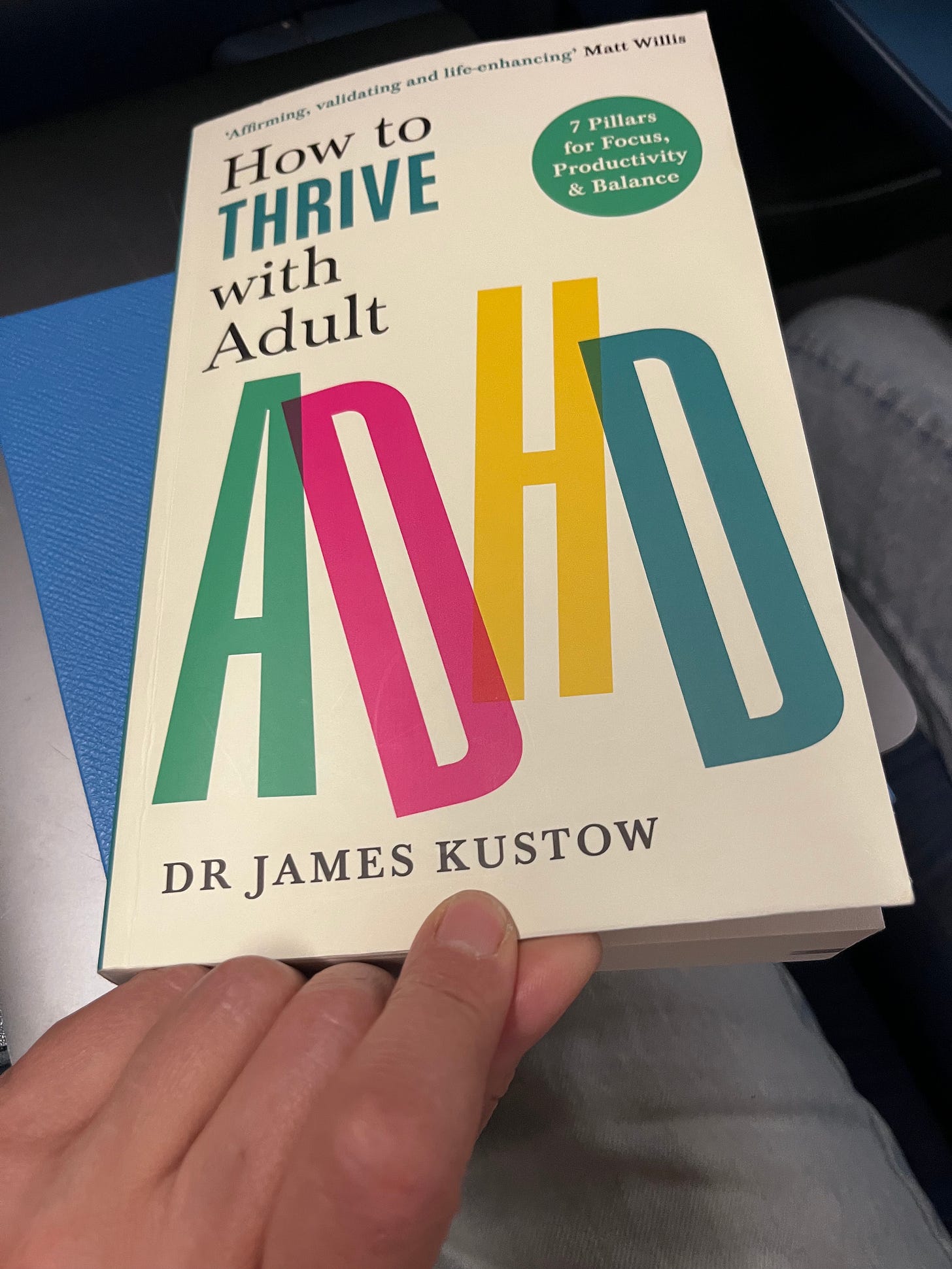
Great post. My heart goes out to his family and bless him … I can only imagine he must have been in a really dark place. I read interviews where he spoke candidly 10 years ago about how suicidal he was, as someone who is 23 years sober from alcohol and other addictions, I know how dark addiction can get and where it can take you. I have ADHD, like many people I know… for me it has helped me put things in place and give myself permission to create system to help me. I learned what I need. I see it as my super power as it means I can do things last minute and I can think on my feet, and I can improvise. I’m good at hyper-focusing and although my brain doesn’t work the same way as everyone else I’m no longer beating myself up.
Thank you for this, Kate. My ADHD heart aches for Liam and for every ADHDer wrestling with the pain and the shame and bloody difficult stuff that comes from being neurodivergent in a neurotypical society x